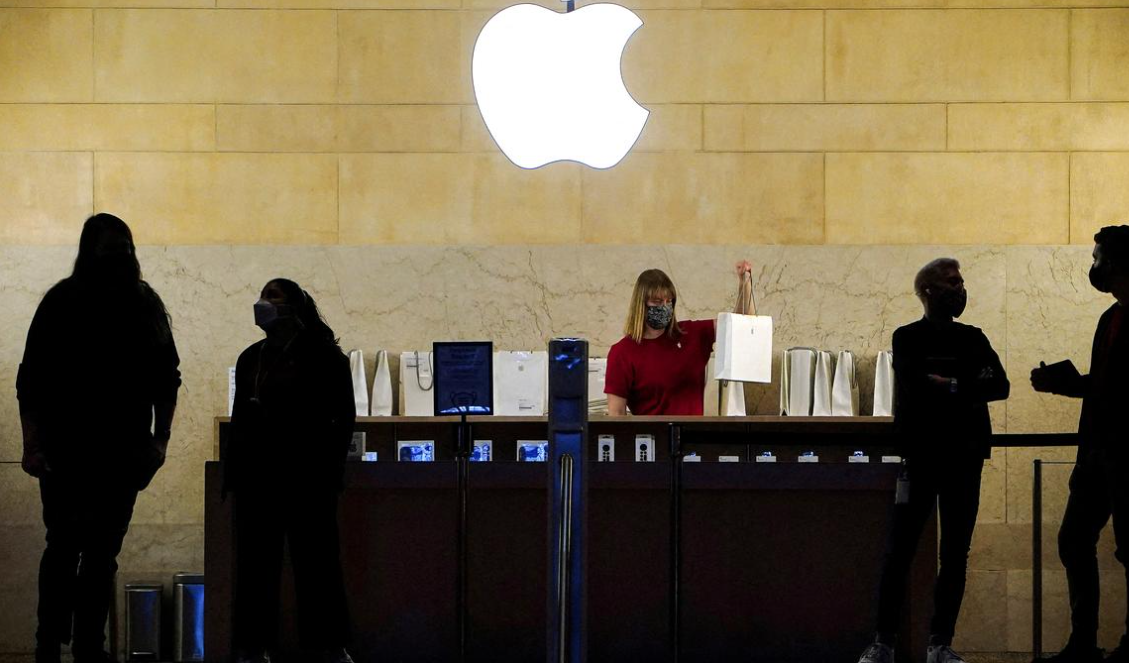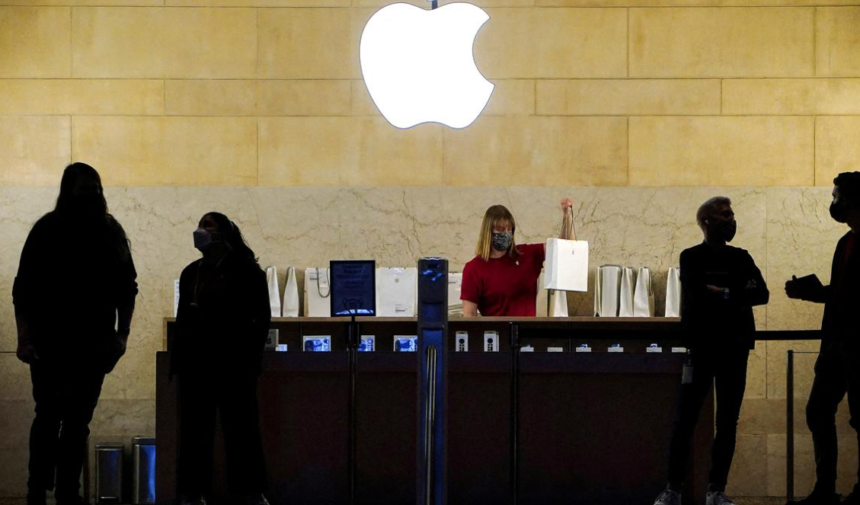In a fresh wave of scrutiny on labor practices in the tech industry, Apple has been accused of restricting employees’ use of Slack, social media platforms, and related channels for discussions on work conditions and organizing activities. The U.S. National Labor Relations Board (NLRB) has filed its second complaint against the tech giant this month, highlighting ongoing concerns about workplace freedoms and rights in one of the world’s most influential companies.
This article explores the details of the complaint, the allegations against Apple, the legal framework governing workers’ rights in the U.S., and the broader implications for labor movements within tech companies like Apple.
1. The Complaint Against Apple
1.1 The National Labor Relations Board’s Allegations
The NLRB, an independent federal agency tasked with enforcing U.S. labor laws in relation to collective bargaining and unfair labor practices, has issued a complaint against Apple. According to the board, Apple is accused of restricting workers’ ability to use internal communications tools like Slack and social media platforms to discuss their working conditions, wages, and workplace-related grievances. This complaint builds on previous accusations that Apple has infringed upon employees’ rights to organize and communicate freely, violating the National Labor Relations Act (NLRA).
1.2 Nature of the Restrictions
The complaint specifies that Apple allegedly imposed limitations on workers’ use of Slack channels and other communication tools to address concerns about labor conditions. Internal communications within many companies, including Apple, have increasingly relied on platforms like Slack, which allow for real-time discussions and collaboration across teams. However, the NLRB claims that Apple curbed workers’ ability to use these platforms for discussions regarding organizing efforts, unionization, and other legally protected concerted activities.
2. Second Complaint in a Short Span
2.1 Recurrent Allegations
This is not the first time Apple has been in the NLRB’s crosshairs for its labor practices. In fact, this is the second complaint filed against Apple this month. Earlier, the NLRB had accused the tech giant of engaging in anti-union behavior and trying to deter workers from organizing by imposing rules that restricted their freedom of expression. The fact that a second complaint has emerged in such a short span suggests a growing concern over Apple’s labor practices.
2.2 Legal Consequences for Apple
The NLRB’s complaints could lead to formal investigations and potentially legal action against Apple. If the allegations are proven, Apple may face sanctions, penalties, and the requirement to make policy changes to align with labor laws. A significant ruling against Apple could set a precedent, signaling to other companies that restrictive communication policies will not be tolerated, especially when they interfere with workers’ rights to organize and engage in protected activities.
3. Workers’ Rights and Labor Laws in Focus
3.1 The National Labor Relations Act (NLRA)
At the heart of this controversy is the National Labor Relations Act (NLRA), a piece of legislation that grants workers in the U.S. the right to engage in collective bargaining, organize unions, and discuss workplace conditions without fear of retaliation. The NLRA protects employees who seek to improve their wages, working conditions, or other terms of employment by engaging in “concerted activities.”
According to the NLRB, Apple’s alleged restrictions on communication channels violated workers’ rights under the NLRA by suppressing legally protected activities such as union organizing and open discussions about work conditions.
3.2 The Importance of Slack and Social Media in Organizing
With the rise of remote work and distributed teams, platforms like Slack and social media have become essential tools for workers to collaborate and communicate. These platforms allow employees to engage in discussions about their workplace, share concerns, and even organize for collective action. When employers place restrictions on the use of such tools for workplace-related discussions, they risk infringing on workers’ rights, as enshrined in the NLRA.
4. Broader Implications for Tech Industry Labor Practices
4.1 Apple’s Position on Labor and Unionization
Apple has long maintained a public image as an innovative company that values its employees. However, the NLRB’s complaints indicate that there may be a disconnect between Apple’s public persona and its internal practices. The company has faced criticism from workers’ groups, particularly from retail employees and contractors, about its handling of workplace concerns, including labor conditions, wages, and work-life balance.
While unionization efforts have gained traction in other sectors of the tech industry, Apple has managed to avoid significant union activity, partly by maintaining competitive wages and benefits. However, the NLRB’s complaints suggest that may be adopting tactics aimed at discouraging unionization, a move that could harm its reputation and relationship with employees.
4.2 Impact on Other Tech Companies
labor-related controversies Other tech giants, including Amazon, Google, and Microsoft, have been accused of suppressing labor organizing efforts. For instance, Amazon has faced repeated scrutiny over its treatment of warehouse workers and efforts to discourage unionization. Similarly, Google workers have accused the company of retaliating against employees engaged in labor activism.
The complaints against could serve as a warning to other tech companies that workers’ rights to organize and communicate freely must be respected. If held accountable, it may prompt other tech firms to reassess their internal policies and ensure compliance with labor laws.
5. The Future of Worker Organizing in Tech
5.1 Growing Momentum for Labor Movements
The tech industry has long been viewed as a sector where employees enjoy better working conditions, wages, and benefits compared to other industries. However, recent years have seen a rise in labor activism within the industry, as workers demand more transparency, better work-life balance, and stronger protections against workplace discrimination.
Employees at companies like Google, Apple, and Amazon have organized walkouts, protests, and formed workers’ unions to address issues such as diversity, pay equity, and workers’ rights. The NLRB’s recent actions against Apple reflect a broader trend of increased scrutiny of labor practices within the tech industry.
5.2 The Role of Communication Tools in Modern Labor Movements
In the modern workplace, communication tools like Slack and social media have become vital for labor organizing. These platforms allow employees to share their grievances, coordinate efforts, and advocate for better conditions, often outside the purview of traditional human resources channels. As more companies rely on digital communication tools, ensuring that workers can freely use these platforms for organizing will be crucial in safeguarding workers’ rights.
Apple’s alleged restrictions on communication tools raise important questions about the balance between protecting company interests and respecting workers’ rights. As the workplace continues to evolve, companies must ensure that they are not inadvertently infringing upon legally protected activities through restrictive policies. 
6. Potential Outcomes and Next Steps
6.1 Possible Resolutions
If the NLRB’s complaints are upheld, be required to revise its internal communication policies to comply with labor laws. This may involve removing restrictions on the use of Slack and social media for work-related discussions, as well as providing assurances that employees can engage in organizing efforts without fear of retaliation.
may also face penalties for any violations of the NLRA. However, beyond the legal consequences, Apple will need to address the broader issue of employee dissatisfaction and the growing momentum for labor organizing within its workforce.
6.2 Impact on Apple’s Public Image
Apple has built its brand on the pillars of innovation, design excellence, and a commitment to ethical practices. However, ongoing labor disputes and accusations of anti-union behavior could tarnish this image, leading to negative publicity and potential damage to its reputation among consumers and employees.
The company’s response to the NLRB’s complaints will be critical in shaping public perception. If Apple is seen as responsive and willing to make changes to support workers’ rights, it may mitigate some of the damage. However, if the company is perceived as resistant to addressing these concerns, it could face further backlash from labor groups, employees, and the public.
7. Conclusion: A Critical Moment for Apple and the Tech Industry
The NLRB’s second complaint against Apple highlights the ongoing tension between workers’ rights and company policies in the tech industry. As platforms like Slack and social media become essential tools for workplace communication and organizing, companies must carefully navigate the fine line between protecting their interests and respecting workers’ rights to engage in protected activities.
For this latest complaint presents an opportunity to reassess its internal policies and foster a more open and supportive environment for employees. As labor organizing efforts continue to gain momentum in the tech industry, the outcome of this case could have far-reaching implications for workers’ rights, labor movements, and corporate practices across the sector.
By ensuring that workers can freely communicate and organize, tech companies like Apple can build stronger, more inclusive workplaces that benefit both employees and the organization as a whole. ALSO READ:- Happy Dussehra 2024 Wishes: Top 25 Quotes, Whatsapp messages, and status in English to share






Купить диплом университета по доступной цене можно, обращаясь к надежной специализированной фирме. Мы оказываем услуги по продаже документов об окончании любых университетов РФ. Приобрести диплом любого ВУЗа– diplomaj-v-tule.ru/kak-pravilno-zanesti-diplom-v-reestr/
пластиковые окна в новосибирске пластиковые окна в новосибирске .
Thanks for the article https://l-spb.ru/
Получить диплом любого университета можем помочь. Купить диплом Ульяновск – diplomybox.com/kupit-diplom-ulyanovsk
https://mirka-master.ru/kupit-plastikovye-okna-v-sankt-peterburge-nadyozhnoe-reshenie-ot-kompanii-afina-okna/